https://johnwernlyautomotiveblog.weebly.com/blog/everything-you-want-to-know-about-the-biscioneand-then-some
Everything You Want to Know About the Biscione...and Then Some
12/23/2017
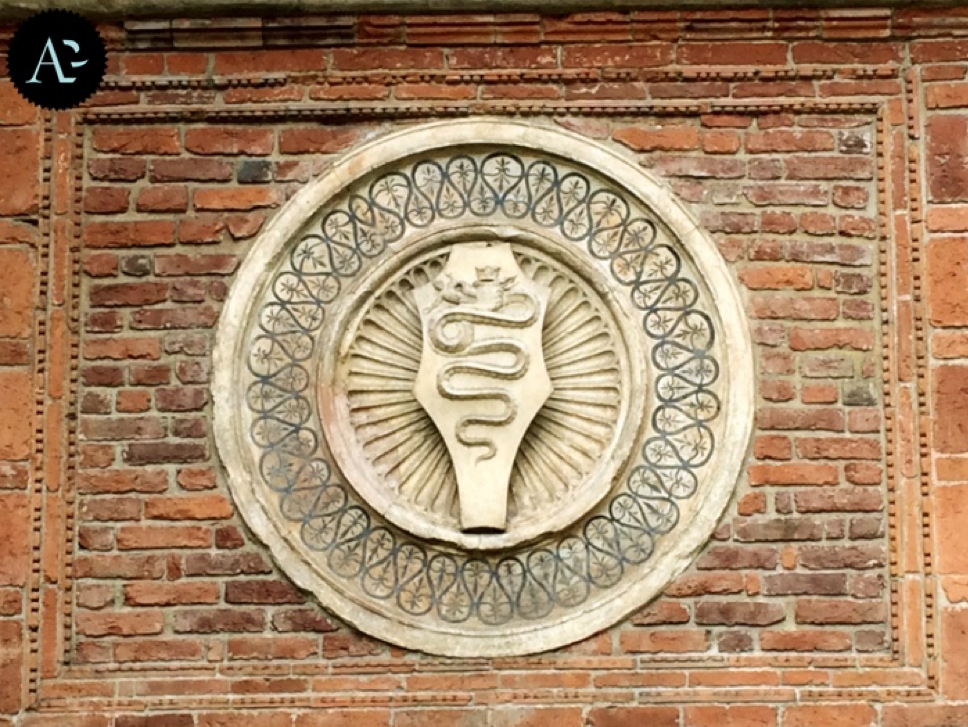
The emblem of the Visconti is the symbol of Milan
The Biscione ('large grass snake'), also known as the Vipera (‘viper’ or in Milanese as the Bissa), is a heraldic charge showing a blue serpent in the act of swallowing a human – usually a child, and sometimes described as a Moor. It has been the emblem of the Italian Visconti family for around a thousand years.
According to the legend, in the 1100s, Ottone Visconti, during the Second Crusade, led an army of Milanese citizens in the siege of Jerusalem, and challenged the cruel Saracen Voluce to a duel. Voluce’s coat of arms was a snake devouring a man. Ottone killed the Saracen, took his weapons and his symbol and brought it to Milan and decided to adopt the warrior’s coat of arm as his own. The symbol of the House of Visconti was born and, when the Visconti family gained control of Milan, the biscione became the symbol of the city. The man eaten by the snake was replaced by a red Saracen and later became a child, with the aim of showing the goodness of the Visconti’s snake.
House of Visconti
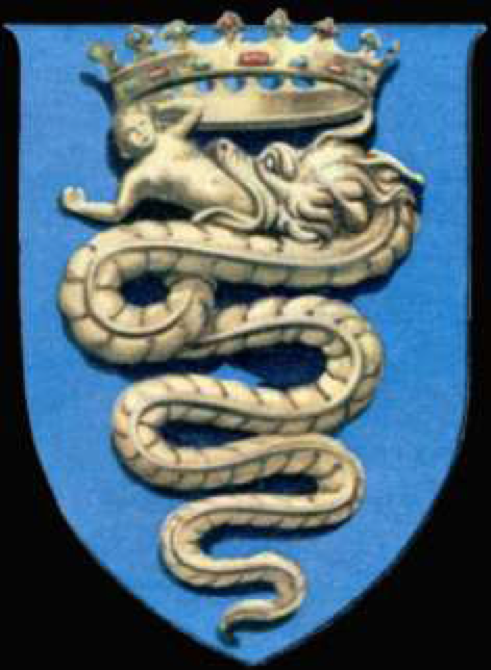
Coat of Arms of the Visconti of Milan depicting the biscione, a serpent who appears to be swallowing a human, but is actually giving birth to it.
Later, the biscione appears in the coats of arms of the House of Sforza, Milan, the historical Duchy of Milan and Insubria. It is also used as a symbol or logo by the Italian football (or soccer, for my American readers) club Inter Milan, and in a version where a flower replaces the child, by Fininvest, as well as the Italian automobile manufacturer, Alfa Romeo and the logo of the private Italian TV network, Canale 5 – Mediaset (Channel 5).
The biscione as a symbol of Milan in the Castello Sforzesco
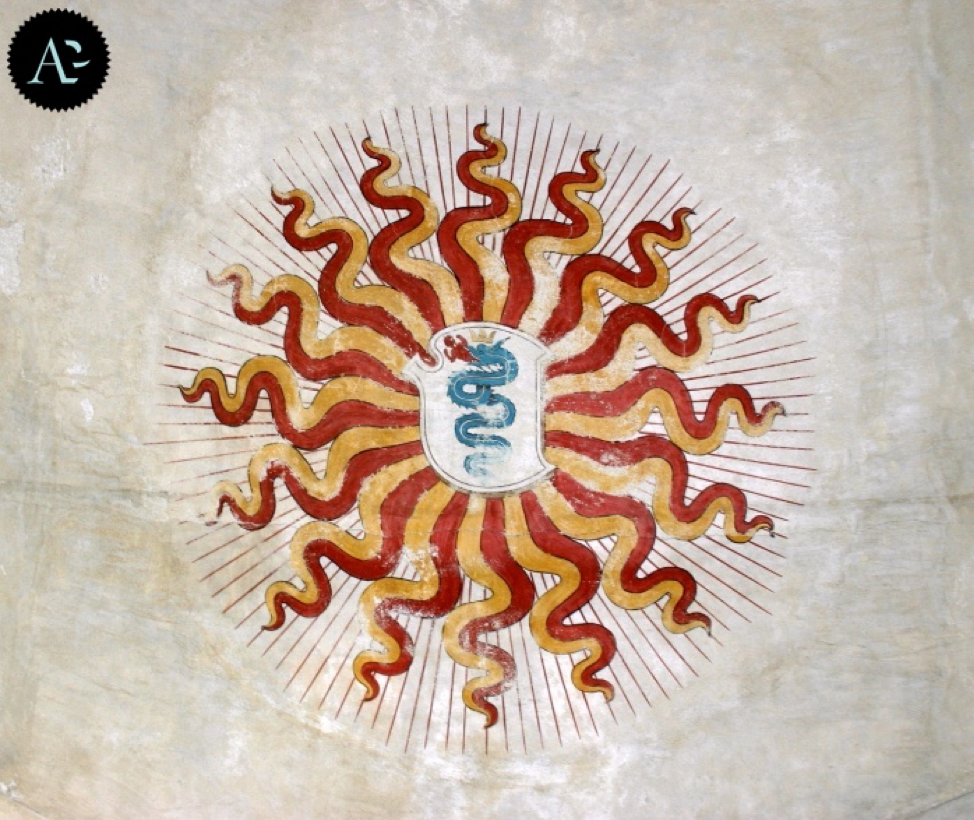
The Castello Sforzesco was built in the 15th century by Francesco Sforza, Duke of Milan, who ruled Milan after the Visconti dynasty, on the remnants of a 14th-century castle, originally the residence of the Visconti family.
Historical Origins
Images of the biscione are found throughout history in different civilizations. One of the most notable is in the representation of the Aztec god, Quetzalcoatl. Notwithstanding the similarities of these two images, since Visconti adopted the Biscione in the 1200s, and the Europeans did not meet the Aztecs until much later, it is very doubtful that the Aztec serpent had any influence on the origin of the Italian Biscione.
Quetzalcoatl
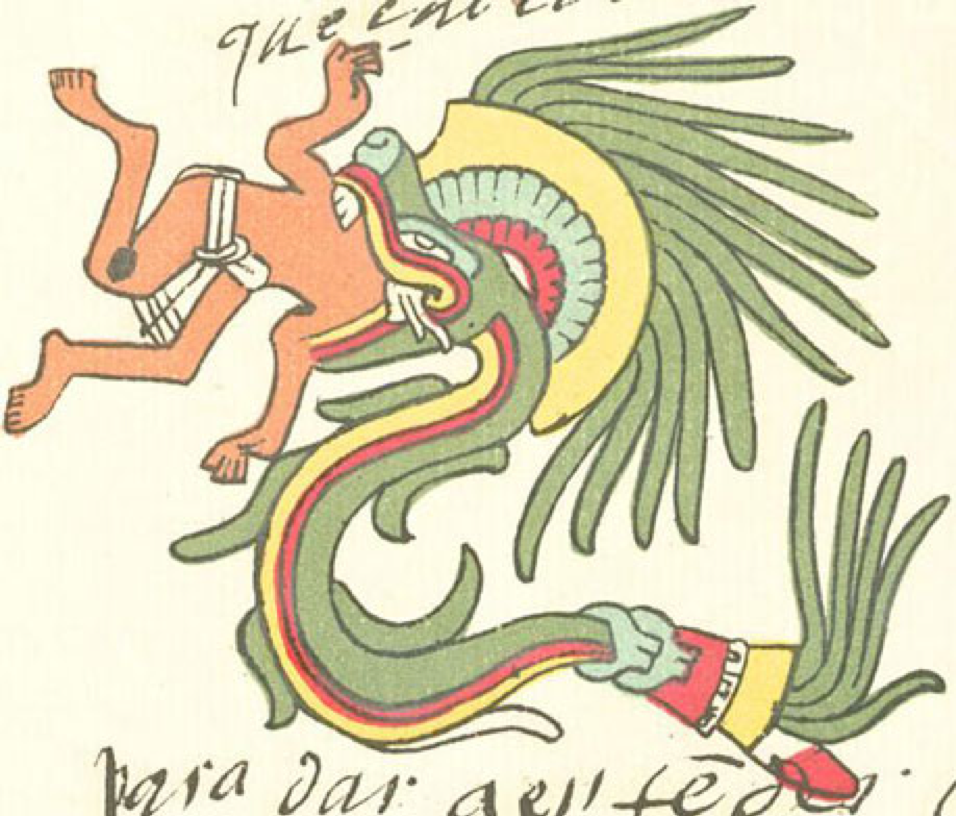
Quetzalcoatl depicted as a snake devouring a man, from the Codex Telleriano-Remensis, one of the finest surviving examples of Aztec manuscript painting.
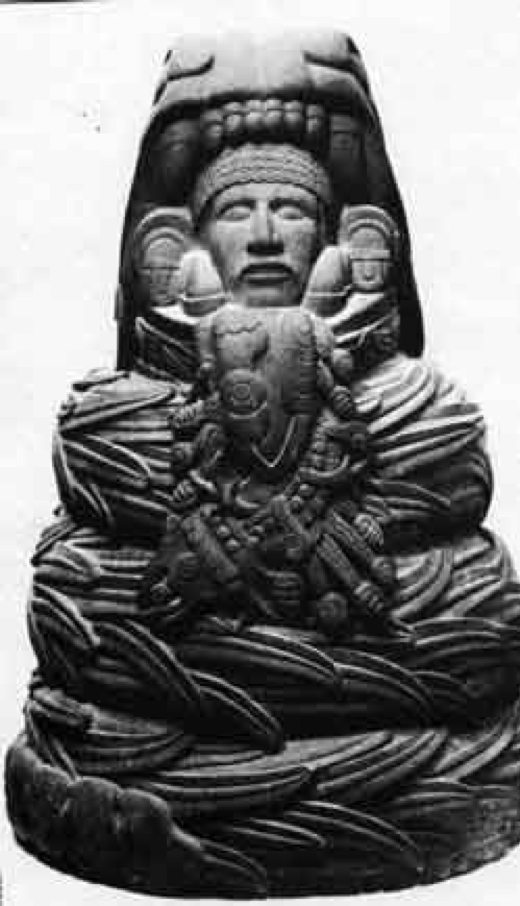
Quetzalcoatl, the Aztec "Lord of Life" and King of Tula being 'consumed' by a 'serpent'
The Biscione in Modern Times
Inter Milan Biscione
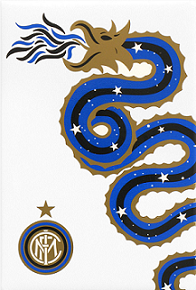
The Italian football (soccer) club, F.C. Internazionale Milano, used the biscione on their old jerseys and emblems, but it depicted the snake breathing fire, instead of eating a man.
Silvio Berlusconi's Biscione
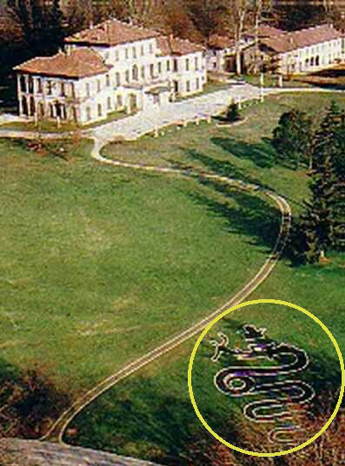
Italian (Illuminati) Former Prime Minister Silvio Berlusconi's Residence with a Crowned Reptile (Biscione) Eating a Human depicted on the Lawn.
Alfa Romeo Emblem

The Logo Contains the Biscione and the Flag or Coat-of-arms of Milan. For more information on this logo, please click this link:
the-iconic-alfa-romeo-badges-history5337467443618259173288105088.html
Canale 5 – Mediaset, Milano Logo

The Biscione – found at the Grazzano Visconti (Province of Piacenza) near Milan
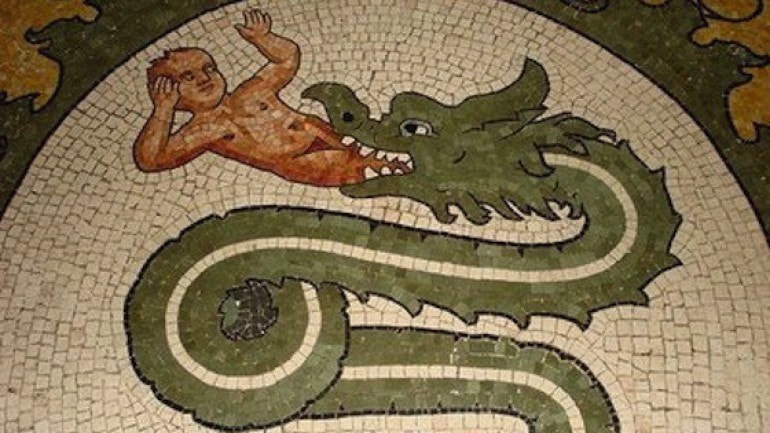
This is a beautiful mosaic of the Biscione found in the small city of Grazzano Visconti located in the province of Piacenza, near Milan.
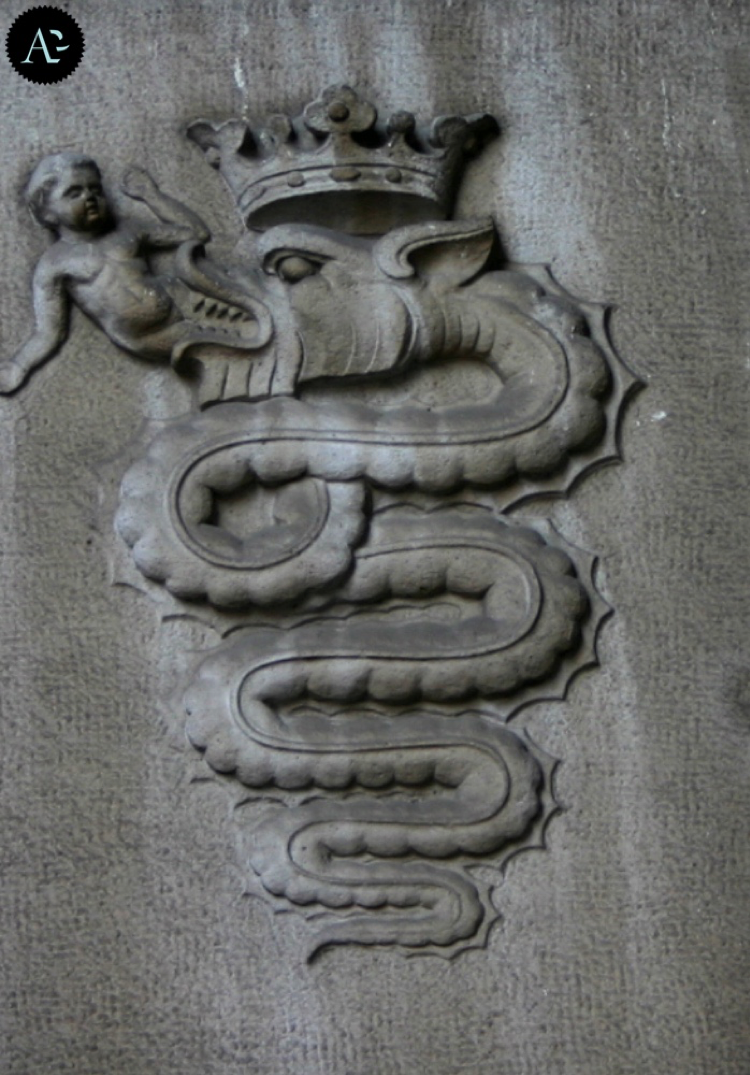
The biscione as a symbol of Milan in the Central Station.
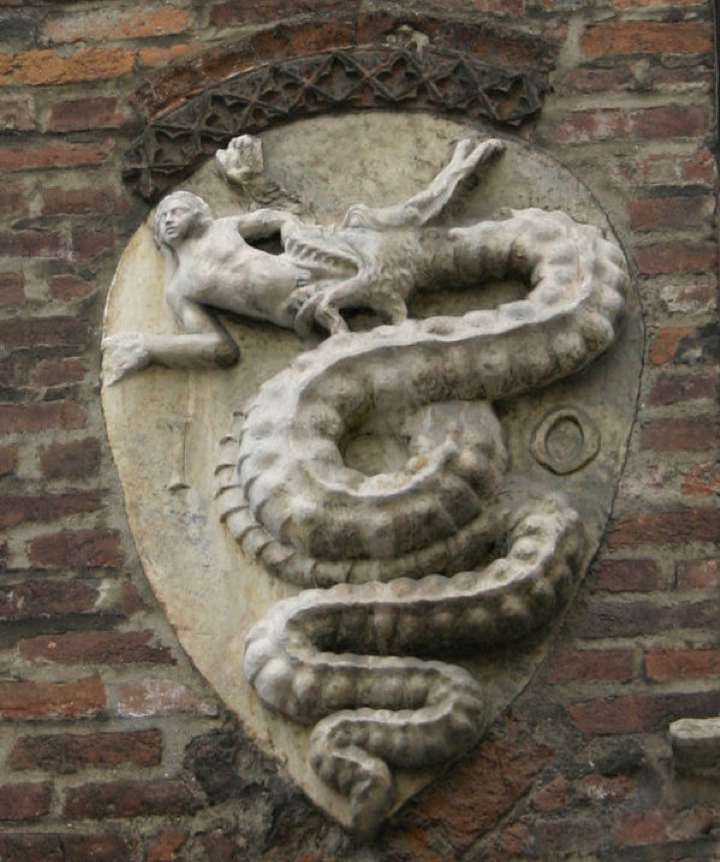
The biscione on the Archbishop's palace in Piazza Duomo in Milan
ENZO TESLA
12/28/2017 02:24:52 pm
I like this article. A lot of information I did not know, yet easy to read and to the point. Thanks.
REPLY
ENZO TESLA
12/28/2017 02:29:49 pm
Will you write about the other charge of the Alfa Romeo emblem? the red cross?
REPLY
ENZO TESLA
1/14/2018 06:39:56 pm
I noticed you have not posted anything new lately. I guess the holidays have distracted you. Don't stop your fine work!
REPLY
SHELLEY BENTZ
4/5/2019 04:37:08 am
Coming across this information as part of a study into the origins of world domination through the papal bloodlines. Best images and the info is most helpful. Might want to update the part about when the Europeans had seen the Aztecs.
REPLY
Leave a Reply.
EmoticonEmoticon